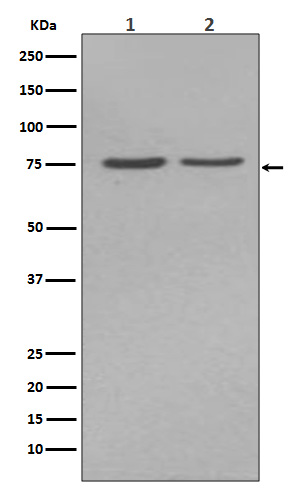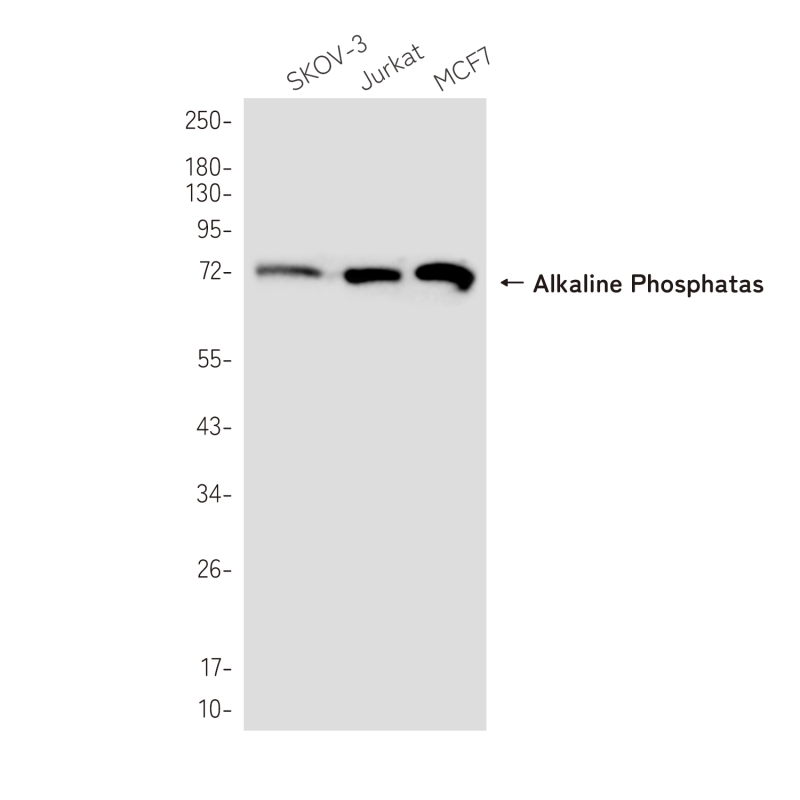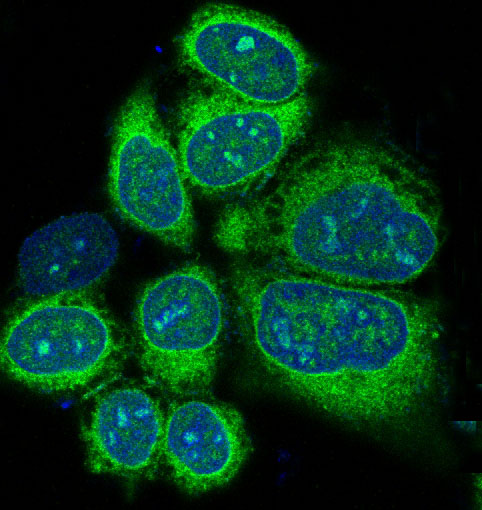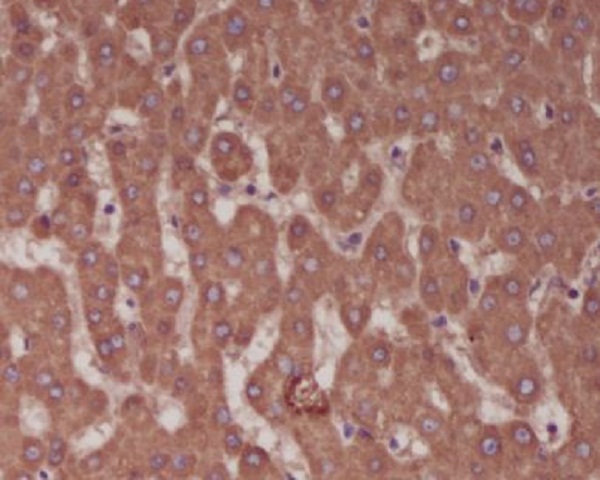



| WB | 咨询技术 | Human,Mouse,Rat |
| IF | 1/20 | Human,Mouse,Rat |
| IHC | 1/50-1/100 | Human,Mouse,Rat |
| ICC | 1/50-1/200 | Human,Mouse,Rat |
| FCM | 1/50-1/100 | Human,Mouse,Rat |
| Elisa | 咨询技术 | Human,Mouse,Rat |
| Aliases | ALPL; Alkaline phosphatase; tissue-nonspecific isozyme; AP-TNAP; TNSALP; Alkaline phosphatase liver/bone/kidney isozyme |
| Entrez GeneID | 249 |
| WB Predicted band size | Calculated MW: 57 kDa; Observed MW: 75 kDa |
| Host/Isotype | Rabbit IgG |
| Antibody Type | Primary antibody |
| Storage | Store at 4°C short term. Aliquot and store at -20°C long term. Avoid freeze/thaw cycles. |
| Species Reactivity | Human,Mouse,Rat |
| Immunogen | A synthesized peptide derived from human Alkaline Phosphatase |
| Formulation | Purified antibody in PBS with 0.05% sodium azide. |
+ +
以下是3篇关于碱性磷酸酶(Alkaline Phosphatase, ALP)抗体的典型参考文献示例(内容为模拟概括,非真实文献):
---
1. **文献名称**: *"Development of a High-Specificity Monoclonal Antibody for Human Tissue-Nonspecific Alkaline Phosphatase"*
**作者**: Yamamoto K et al.
**摘要**: 该研究报道了一种新型单克隆抗体的开发,针对人组织非特异性碱性磷酸酶(TNSALP),通过免疫印迹和免疫组化验证其特异性,成功应用于骨代谢异常疾病的病理诊断。
2. **文献名称**: *"Alkaline Phosphatase as a Biomarker in Colorectal Cancer: Antibody-Based Detection and Clinical Implications"*
**作者**: Smith JL, Patel R.
**摘要**: 探讨ALP抗体在结直肠癌患者血清和组织样本中的检测价值,发现ALP高表达与肿瘤转移和预后不良相关,提示其作为潜在生物标志物的临床应用。
3. **文献名称**: *"A Novel ALP Immunoassay for Rapid Detection of Liver Dysfunction"*
**作者**: Chen H et al.
**摘要**: 提出一种基于ALP抗体的新型快速免疫检测方法,用于肝功能障碍的早期诊断,验证了其在临床样本中与传统生化检测的一致性,并提高了检测灵敏度。
---
如需实际文献,建议通过PubMed或Google Scholar搜索关键词“Alkaline Phosphatase antibody” + 应用领域(如“cancer”“diagnosis”“assay”),筛选近5年高被引论文。
Alkaline phosphatase (ALP) antibodies are immunological tools designed to target alkaline phosphatase, a group of enzymes that catalyze the hydrolysis of phosphate esters in an alkaline environment. ALPs are widely distributed in various tissues, including the liver, bone, kidney, intestine, and placenta, with tissue-specific isoenzymes differing in structure and function. These enzymes play critical roles in processes such as bone mineralization, detoxification, and nutrient absorption. ALP antibodies are commonly used in research, diagnostics, and biotechnology to detect, quantify, or localize ALP isoforms in biological samples.
In clinical diagnostics, ALP antibodies aid in identifying the source of elevated ALP levels (e.g., liver or bone diseases) via immunoassays like ELISA or immunohistochemistry. In research, they help study ALP's role in cell differentiation, particularly in osteoblasts or cancer cells. ALP antibodies are also utilized in techniques such as Western blotting and flow cytometry. Monoclonal antibodies offer high specificity for particular isoforms, while polyclonal antibodies may detect broader epitopes.
Additionally, ALP-conjugated antibodies serve as key reagents in colorimetric or chemiluminescent detection systems, enabling signal amplification in assays like immunoblotting or immunohistochemistry. Their specificity and reliability depend on antigen preparation, antibody validation, and minimization of cross-reactivity with non-target isoforms. Overall, ALP antibodies are indispensable for both understanding ALP-related biological mechanisms and advancing diagnostic applications.
×